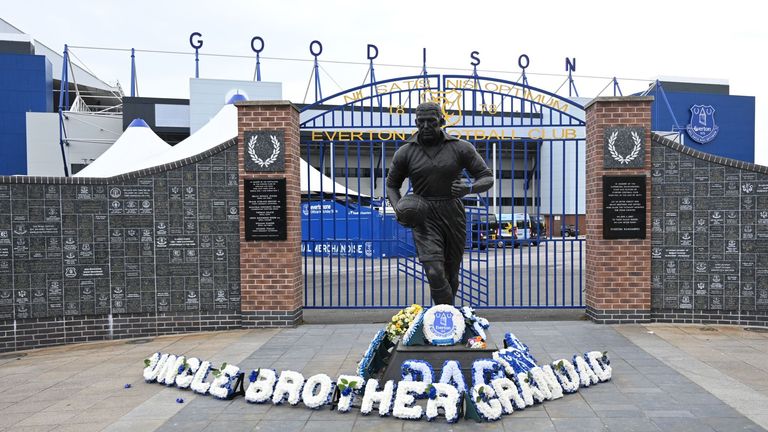Everton have made major change behind the scenes that could explain injury list
EXCLUSIVE: Everton FC correspondent Joe Thomas sits down with head of performance Mark Howard to discuss managing pre-season and working to identify injuries at their earliest stage
n first glance, Everton’s injury list may look daunting. While the win over Preston North End offered a confidence boost, the absence of several important players was a clear concern with just a fortnight to go before the start of the new Premier League campaign. But if you look harder, there is an argument it is evidence of a deeper, underlying, development at Finch Farm.
Sean Dyche and his coaching staff want players to speak up when they feel an issue. A big part of the behind-the-scenes work since he arrived in January 2023 has been to build a culture of trust. That means stars speaking out when they feel anything that causes them worry. The sooner a potential problem is spotted, the quicker it can be assessed and dealt with – and the smaller the risk that a minor complaint becomes a long-term injury.

Dyche insists that he does not want ‘heroes’ putting their bodies at risk at this stage of the season. It is an approach that is central to preparations for a new campaign, according to Mark Howard, the club’s head of performance.
“When the gaffer says there are no heroes, he really means it,” Howard said “Because if you do just feel something we have got a big group [so can deal with players being absent]. So when we’re pushing reasonably hard, we know the lads are going to get sore. The challenge is just differentiating between soreness and the edge of an injury. We have got a great collection of staff that are all working together for that – that is through the medical staff, the insights guys, the analysis staff and the sports science staff. We are talking together every day at the start and at the end, so communication and organisation is absolutely critical so that we’re all aware of the things that are going on and looking at scenarios where we do maybe just need to pull someone out of part of a session or a full session so that we know they’re ready for the next one.”
The work is crucial to allowing the squad to hit the ground running without putting their bodies at risk, Howard added, explaining: “If you don’t do anything for six, seven weeks, and you come back in and you’re into an intense training programme, then the risk of injury goes up.”
Dyche leads a team that places a high value on fitness. The work of pre-season is therefore important, but it continues into the campaign. Ahead of each game there will be meetings in which the demands likely to be placed on the squad by the next opponent are discussed and analysed, with the conclusions feeding back into training plans. Importance is also attributed to the statistics that feed back to the coaches, with the club’s sports science team monitoring each player’s performance data to see how they are faring. This is particularly crucial when a busy season places such heavy demands on what is still a relatively small squad. Essentially, avoiding injuries is deemed key and – as has been evident in pre-season – sometimes that means protecting players as a precaution.
Howard said: “As soon as we get an injury we will reflect quite deeply on whether there was anything we could have done differently because we don’t want injuries. So managing the individuals within the group is really key. We are wanting to push everyone as a group. That’s really important. No club ever goes through a full season without injuries. So where injuries are a consequence of trying to get a group ready to be competitive in the league, we want to reduce that as much as possible.”





